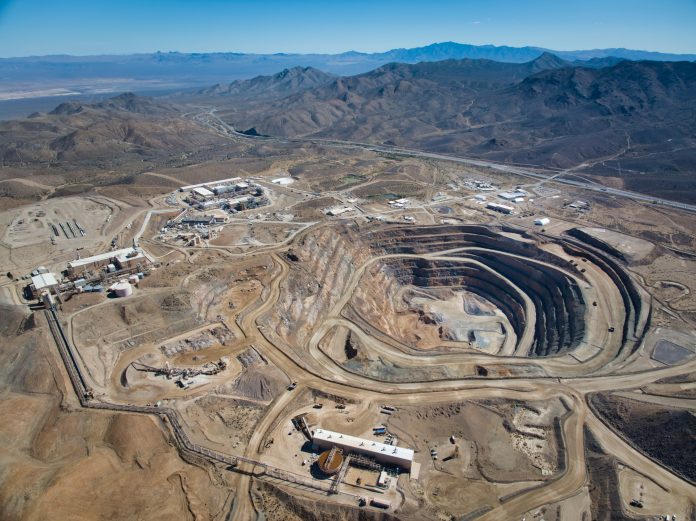Rare earth metals—the raw materials powering modern technologies like chips, EV engines and military weapons—are at the center of escalating U.S.-China trade tensions. As the Trump administration pushes to reduce reliance on imports from China, which produces more than 90 percent of the world’s supply, investors are betting big on MP Materials, the only U.S.-based company that mines, refines and processes rare earths. Its stock has surged more than 400 percent this year. But as geopolitical and economic forces shift, some experts are questioning whether MP’s valuation is entering bubble territory.
Investor interest surged after China imposed new restrictions on rare earth exports to the U.S. in April. The rally was also fueled by MP’s high-profile deals, including multi-billion-dollar investments with the Department of Defense and a $500 million agreement with Apple in July. While some industry observers see these developments as a major win, others are skeptical that MP can fully deliver on its promise to anchor the U.S. tech supply chain.
“MP Materials looks like a hot stock at the moment, as investors’ enthusiasm stems from a rare combination of geopolitical tailwinds, high-profile strategic deals and strong financial momentum,” John Murillo, chief business officer at fintech firm B2Broker, told Observer. “My greatest concerns, though, are tempered by lingering worries overvaluation, execution risk and insider selling.”
MP Materials operates in California’s San Bernardino Valley, sitting atop a rich ore deposit at the Mountain Pass mine. Its core product, neodymium-praseodymium (NdPr) oxide, is processed at its Fort Worth, Texas facility into neodymium magnets, known as NdFeB magnets. These magnets are essential components in electronics, EVs, robotics, aerospace and defense systems due to their high magnetic strength and energy density. As the U.S. seeks to reduce its dependence on China, MP offers a strategic advantage, challenging China’s near-total dominance of the global metals market amid the Trump administration’s push to revive domestic manufacturing.
Why MP Materials is the sole metal producer in the U.S.
MP’s dominance stems largely from timing. Between the 1960s and 1990s, the U.S. was a major producer of rare earths, sourcing most of its supply from the Mountain Pass mine. But as globalization expanded trade, competition from cheaper, subsidized Chinese imports forced the mine to close in 1998. Nearly two decades later, in 2017, MP Materials bought the site out of bankruptcy for $20.5 million and restarted operations the following year.
Building new U.S. mines is notoriously difficult due to complex permitting rules, environmental regulations, high capital costs and long development timelines. MP sidestepped many of these obstacles by reviving an existing mine that already had much of the needed infrastructure and approvals in place.
“The lengthy permitting processes and overly complex regulations in the U.S. have made domestic extraction and processing of rare earths very expensive, placing U.S. development at a severe disadvantage compared to global competitors,” Steve Christensen, executive director of nonprofit Responsible Battery Coalition, told Observer.
Meanwhile, the U.S. also lags behind China in processing technology. Producing rare earths requires solvent extraction, a costly metal separation process dominated by Chinese firms, Mark MacDonald, vice president of investor relations at Ucore Rare Metals, told Observer.


MP isn’t in a bubble–yet
Despite concerns, most analysts agree MP is unlikely to enter bubble territory in the short term. China’s export restrictions, combined with deregulation under the Trump administration and strong government partnerships, have positioned MP as a key player in America’s effort to decouple its tech supply chain from China, according to MacDonald.
“This government commitment will provide excellent long-term financial opportunities as this new industry is established and MP is the de facto leader of this movement,” he told Observer.
Still, MP’s long-term value hinges on its ability to scale production. The company recently opened a magnet facility in Fort Worth, Texas, which began commercial production in January 2025—part of a broader plan to establish a U.S. rare earth-to-magnet supply chain by 2026. MP aims to produce 1,000 metric tons of magnets annually, supplying three of the five major automakers, including General Motors, according to the company. To justify its valuation, MP must prove it can expand output efficiently.
“There’s a lot of promise for this to actually bring the control of the supply chain home, but it hasn’t been proven out at scale yet,” Diana Rasner, group lead of the materials, chemicals, waste and recycling division at CleanTech Group, a business intelligence firm, told Observer.
Rasner cautions against putting all hopes on one company. Overreliance on MP could sideline smaller players in the U.S. tech supply chain (such as Noveon Magnetics, a magnet recycler) as well as new rare earth producers that could emerge under the Trump administration. “If we are going to allow ourselves to say MP Materials is our only solution, I see a bubble,” she said.
She also notes that shifting geopolitics could cool MP’s stock. A return to U.S.-China diplomacy, for instance, could lower demand for reshored supply chains and deflate MP’s price. China has previously used its rare earth dominance as a geopolitical weapon—most notably restricting exports to Japan in 2010 during a maritime dispute—highlighting how policy risks could unsettle global supply chains.
Rasner speculates that MP’s stock could self-correct if China lifts its export restrictions. That could mean the U.S. goes back toward diplomacy and finds a more “friendly way” to exchange goods, she said.
As Murillo from B2Broker put it, “Speculation driven by policy headlines more than underlying fundamentals” can backfire. “If earnings growth or production volumes don’t keep pace, the stock could be vulnerable to sharp corrections,” he cautioned.


